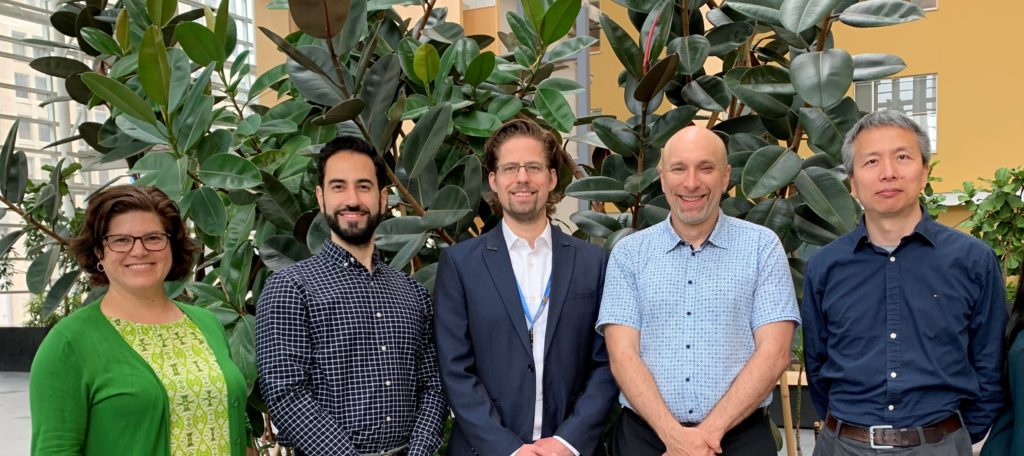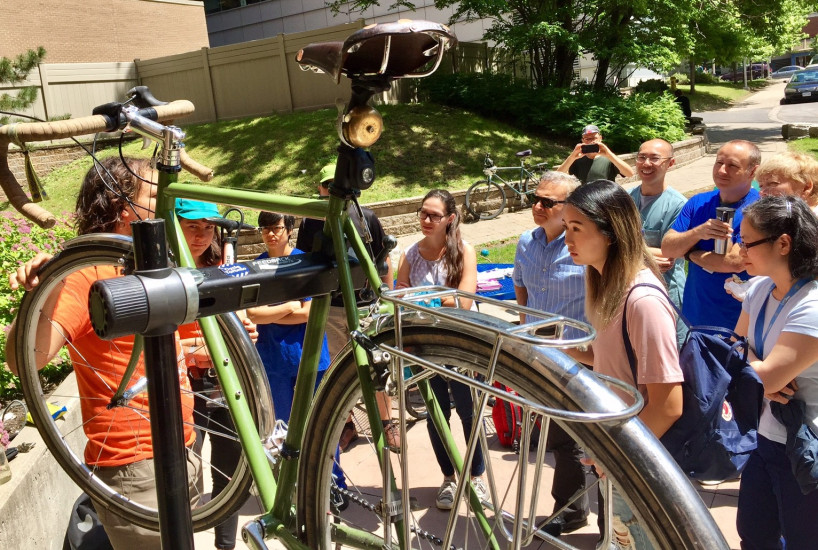Edward Rubinstein is Director of Environmental Compliance, Energy & Sustainability at University Health Network (UHN) based in Toronto, Ontario, Canada. Started in 1999, this multi-award winning environmental sustainability program has implemented a variety of innovative initiatives that have led to energy savings, successful product substitutions and changes in user culture to foster a more sustainable health care.
Since its inception the motto of the program has been “UHN: Committed to Patient and Planet Centered Care”. They began with a focus on energy conservation that over the years has resulted in the implementation of hundreds of initiatives, saving 1.4 million Gigajoules (GJ) and over 19 million Canadian Dollars (almost 14.3 million US Dollars).
The new UHN Energy Management Plan, 2019 – 2024 builds on previous experiences and targets a transition to renewable energy, focus on resilience, and also working with the community to raise awareness on the importance of energy efficiency and conservation.
In 2019, the UHN received the Health Care Climate Challenge award from Health Care Without Harm in the categories of Climate Resiliency (Gold) and Climate Leadership (Gold) for their outstanding work in these fields. They are no stranger to these awards as they’ve qualified for them since the Challenge launched in 2015.

Lisa Vanlint, Mehdi Motakefpour, Mike Kurz, Edward Rubinstein, and Songyang Hu, members of the Energy & Environment Department | Credits: UHN
A three-pillars strategy
Their integrated strategic approach for the sustainability program is based on three pillars: action and implementation, measurement verification, and education, awareness and behavior change. “We found that these three pillars feed each other and they all work together to help change the culture and create opportunities,” Rubinstein says.
UHN’s engagement and awareness program is key to their strategy as it provides the projects the scalability and flexibility needed to obtain results and replicate the model in the different facilities of UHN.
A shining example of this approach is the Deep Lake Water Cooling project that UHN implemented in 2018. They took a district cooling system already in place in UHN’s Toronto Rehab – University Centre that uses cold water from Lake Ontario to provide air conditioning and cooling for buildings at its Toronto General Hospital. Thanks to its success they are now expanding this and implementing it in their Princess Margaret Cancer Centre.
UHN combined the implementation of this initiative with a strong communication and awareness information campaign on social media, the web and their blog.
“It is one thing to implement projects and specific initiatives, but sometimes you really look at changes in the culture. Because once you change the culture you will find that initiatives create and solve themselves. And then a small change has a much broader impact,” Rubinstein comments.
All hands on
An example of their participatory activities is GROW (Garden Rehab On Wheels), a wheelchair accessible garden at Toronto Rehab, with custom height planters and wheelchair accessible paths that enables patients to participate in gardening as part of their rehabilitation. The program is on its fourth growing edition and continues to expand.

Hospital staff and volunteers participating in the GROW initiative. Top Left clockwise: Fermina Sticklee, Ana Ferreira, Jackie Cotton, Annette Petersen, Mahnoor Muqeem, Grace Wong | Credits: UHN.
In terms of change in the culture, for Rubinstein some of the more challenging projects are related to waste management, such as reducing single-use plastics, and the use of styrofoam and non-recyclable materials.
Over time the team learned that to be successful some projects need a broader and more inclusive approach while including other aspects important to the organization such as safety, resilience, and patient care.
The three-pillars strategic approach is key to results, as it provides an integral overview not only for the implementation but integrates community and staff as part of the solution.
For Rubinstein, “it is great working in health care and to see the dedication, focus and commitment of people. They see the length between environmental health and health care and always want to do more and create an impact on health and the environment.”

Bike Month at UHN. Activity designed to promote the use of bikes and reduce car emissions | Credits: UHN
UHN received the following awards from Health Care Without Harm’s Global Green and Healthy Hospitals and Practice Greenhealth:
- Global Green & Healthy Hospitals Health Care Climate Challenge – Climate Resiliency
- Gold: 2019, 2017, 2016, 2015.
- Global Green & Healthy Hospitals Health Care Climate Challenge – Climate Leadership
- Gold: 2019, 2017, 2016.
- Silver: 2015.
- Global Green & Healthy Hospitals Health Care Climate Challenge – Energy Efficiency
- Silver: 2015.
- Practice Greenhealth – Environmental Leadership Circle: 2010, 2009, 2008.
Climate Champions are participants in the Health Care Climate Challenge who have won awards for their achievements in the areas of climate mitigation, resilience and leadership.

